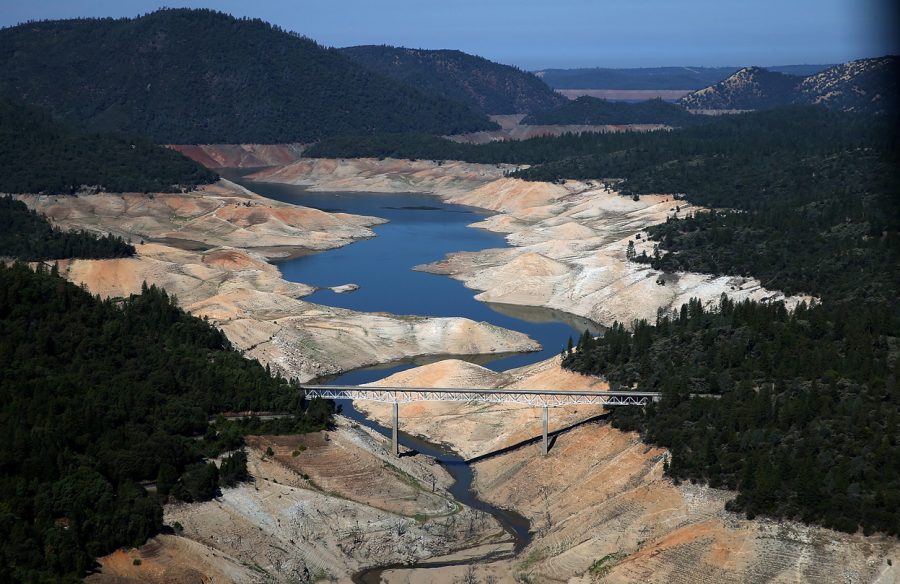Individual Action Is A Drop in the Bucket of California Drought Reform
We have been approaching the issue of droughts in California incorrectly—it’s time for collective action
You know you’re in California when you look out the window and see a Martian landscape complete with hazy orange skies. Nearly every single year we dread our fifth season: fire season—and 2021 is no exception. In fact, July 2020 to June 2021 was the driest rainfall period to date, shattering a century-long record.
California’s drought plagues the entirety of the state and affects over 37 million people, especially agricultural regions that are suffering from dwindling crop yield, increased wildfire spread, dangerously low livestock survival rates, oxygen-sucking algae blooms, and much more. Numerous environmental analysts contend that we are past simply fixing leaks and taking speedy showers; it is time to enact large-scale, collective measures for drought reform.
Joshua Goldstein, Professor Emeritus of American University, co-authored A Bright Future, a book on international responses to climate change. When interviewed by the Aspen Institute in 2019, he commented on a common misconception about environmental consciousness: “The informed public that’s paying attention understands the seriousness of the problem and its urgency, but not the scale.”
In an essay for The Guardian, Canadian environmental writer and investigative journalist Martin Lukacs argues that “individual action theory-of-change” is a tactic to push the blame of environmental crises onto the general population rather than the government and large corporations. He writes,
A prevalent drought response from organizations such as the California Department of Water Resources is to encourage people to implement daily water conservation efforts such as turning off the water when brushing their teeth or keeping track of their water bills. However, environmental advocates like Goldstein and Lukacs agree that as vital as it is to make individual changes, the real impact will stem from large-scale initiatives and federal or statewide legislation. This is not to say that integrating water conservation into our lifestyle is not helpful or important; both individual and collective action are necessary.
One of the main pending state reforms is the allocation of funding and resources to agricultural regions, which rely immensely on water sources. Representative Josh Harder (D-CA) and Secretary of Agriculture Tom Vilsack have recently announced their plan to create policies to support farmworkers and the rural economy. They emphasized the importance of providing financial assistance to farmers through dry periods in addition to revamping ports and building efficient water storage facilities—such as groundwater reservoirs.
Currently, the state’s water grid is aging and losing its effectiveness. The California State Water Project (SWP), a multi-purpose water storage and delivery system, has a concerning lack of bandwidth for proper water allocation. California is in need of a comprehensive program to address above—and below—ground storage, conveyance, operational challenges, and modernization.
Statewide allocation and refurbishment of water infrastructure are only two broad examples of many forms of large-scale drought response. Methods such as desalination, fracking regulation, and water recycling are still being debated and discussed as alternatives. As California plunges deeper and deeper into its water crisis, further action is inevitable and needed. California citizens in the meantime need to do their part conserving, but mobilizing a widespread political effort is most needed, as individual water conservation is only a drop in the bucket.


